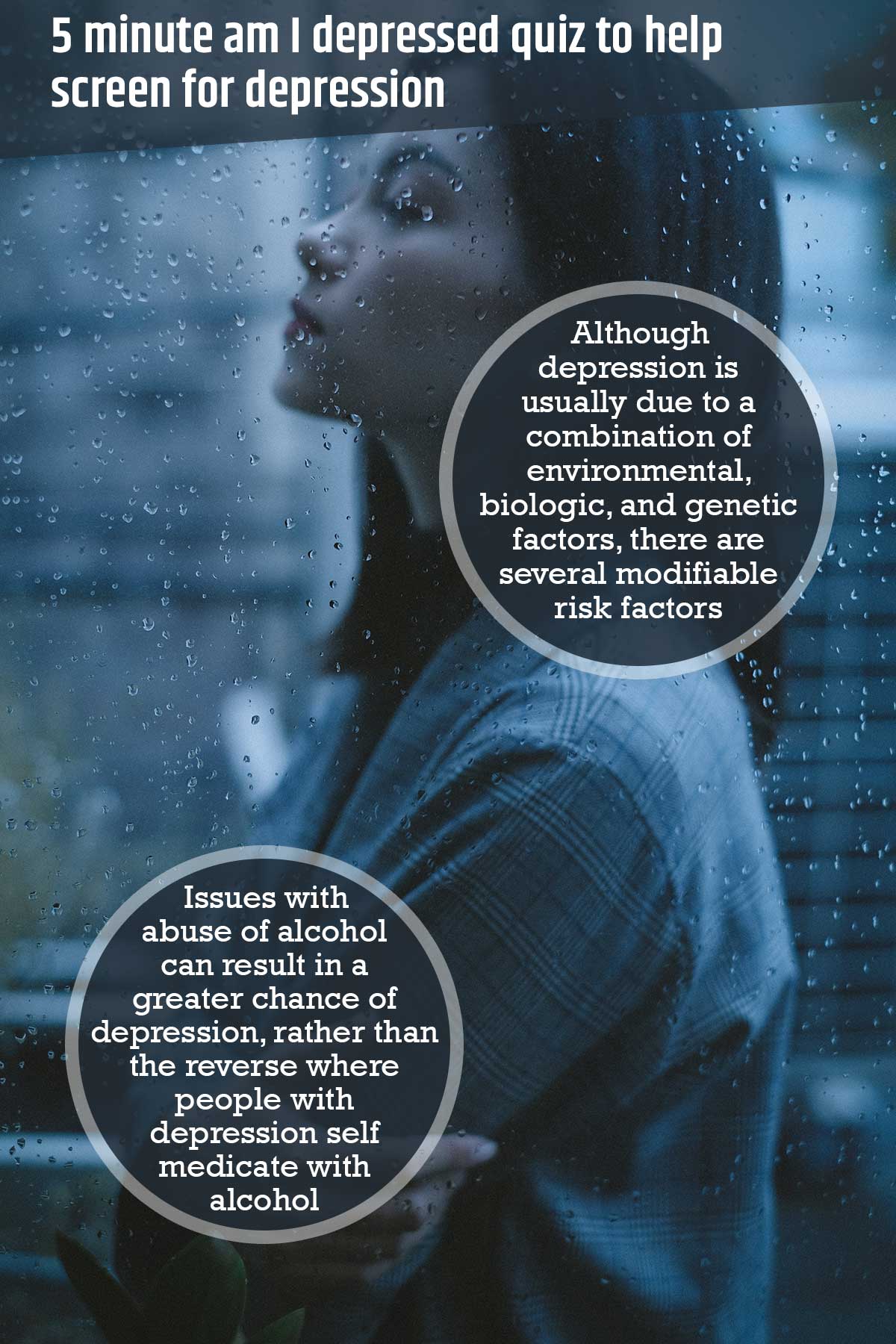Although depression is usually due to a combination of environmental, biologic, and genetic factors, there are several modifiable risk factors, three of which are mentioned below, before the depression quiz.
Nutrition and depression
Research has proven that the risk of depression is increased by poor nutrition. A 6 year study showed that individuals who had a higher consumption of trans-fats had as much as a 48% increase in depression risk in comparison to individuals who didn’t eat these fats.1✅ JOURNAL REFERENCE
DOI: 10.1371/journal.pone.0016268
The research also revealed a dose-response relationship, the higher the trans-fat consumption, the more harmful the effect they produced in the individuals.
The influence of olive oil and of polyunsaturated fats (plentiful in vegetable oils and fish) on the prevalence of depression was also analyzed. It was discovered that olive oil and these types of healthier fats are linked to a lower depression risk.
Sleep and depression
Studies have reported links between depression and sleep duration. Healthy sleep is a requirement for mental, physical, and emotional well-being. These studies show that mental health can be improved by prioritizing sleep.
In one study involving 1,788 twins, it was shown that the genetic risk for symptoms of depression is increased by sleep durations outside the normal range.
The genetic influence on symptoms of depression increased to 53% in twins who had a short sleep duration of 5 hours a night and 49% in those who reported a sleep duration of 10 hours a night.2✅ JOURNAL REFERENCE
DOI: 10.5665/sleep.3412
Both short and excessively long sleep durations seem to activate genes related to symptoms of depression.
In another study, it was shown that the risk for major depression in adolescents increased with a sleep duration of 6 hours or less a night, which subsequently increases the risk for decreased sleep.3✅ JOURNAL REFERENCE
DOI: 10.5665/sleep.3388
Alcohol and depression
A study has shown that issues with abuse of alcohol can result in a greater chance of depression, rather than the reverse where people with depression self medicate with alcohol.4✅ JOURNAL REFERENCE
DOI: 10.1001/archgenpsychiatry.2008.543
Experts looked at the association between abuse of alcohol and depression making use of data collected in a 25 year health study. 1,055 people were looked at for both dependence and abuse of alcohol and depression conditions at years seventeen to eighteen, twenty to twenty one and twenty-four to twenty-five years, as well as asked questions regarding demographic factors and lifestyle.
Three models had been looked at to suit the results, one in which abuse of alcohol and depression had a mutual association within time, another where alcohol disorders brought about major depression plus a 3rd where major depression resulted in alcohol problems.
The depression quiz
This depression quiz is actually the Center for Epidemiologic Studies Depression Scale (CES-D). The CES-D scale is a questionnaire designed to help identify major or clinical depression. It was first developed in 1977 and revised in 2004. The CES-D scale is one of the more widely used screening tests for determining depression.5✅ JOURNAL REFERENCE
DOI: 10.1177/014662167700100306
The CES-D scale is really a short scale made to determine depressive symptoms within the general populace. The questions on the scale are symptoms related to depression that have been made use of in earlier longer scales.
The CES-D scale was evaluated in home interview surveys as well as in primary care settings. The CES-D scale is well recognized and continues to be among the most widely used tools for epidemiologic studies of depression.
It’s important to visit your physician for an accurate diagnosis.



